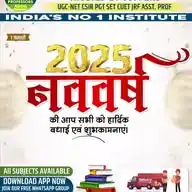
UGC NET JRF notes Professor Adda Institute
June 13, 2025 at 09:35 AM
Click here to get complete notes क्लिक करें आपको नोटस मिल जायेंगे ...Tell us Subject
https://wa.me/+919257007505?text=Send_me_notes_My_subject_medium_is_विषय_है
JUNE 2025 EXAM (TEACHING & RESEARCH APTITUDE) JRF Topic
PROFESSOR ADDA NOTES BOOKLET
Theory of Constructivism in Teaching and Learning
Overview: Constructivism is a significant educational theory emphasizing that learners actively construct their own understanding and knowledge of the world, through experiencing things and reflecting on those experiences. It shifts the focus from teacher-centered to learner-centered education.
Key Contributors:
Jean Piaget (1896–1980): Emphasized cognitive development in children and the role of schemas in constructing knowledge.
Lev Vygotsky (1896–1934): Highlighted the social and cultural influence on learning; developed the Zone of Proximal Development (ZPD).
Jerome Bruner (1915–2016): Supported discovery learning and the spiral curriculum approach.
Core Principles of Constructivism:
1. Learning is an active process – Learners construct new ideas based on current/past knowledge.
2. Knowledge is constructed, not transmitted – Teachers act as facilitators.
3. Learning is contextual – It occurs more effectively in real-world and meaningful settings.
4. Social interaction plays a fundamental role – Learning occurs through dialogue and collaboration.
5. Learner autonomy and initiative are central – Students take ownership of learning.
Types of Constructivism:
Cognitive Constructivism (Piaget) – Focuses on individual learning processes.
Social Constructivism (Vygotsky) – Emphasizes social context and collaboration.
Facts & Data:
According to a UNESCO (2023) report, constructivist approaches enhance student engagement by 35% compared to traditional methods.
National Education Policy (NEP) 2020 strongly encourages constructivist pedagogy through experiential learning and inquiry-based education.
Important Books:
“The Construction of Reality in the Child” by Jean Piaget
“Mind in Society” by Lev Vygotsky
“The Process of Education” by Jerome Bruner
“How People Learn” – National Research Council (U.S.)